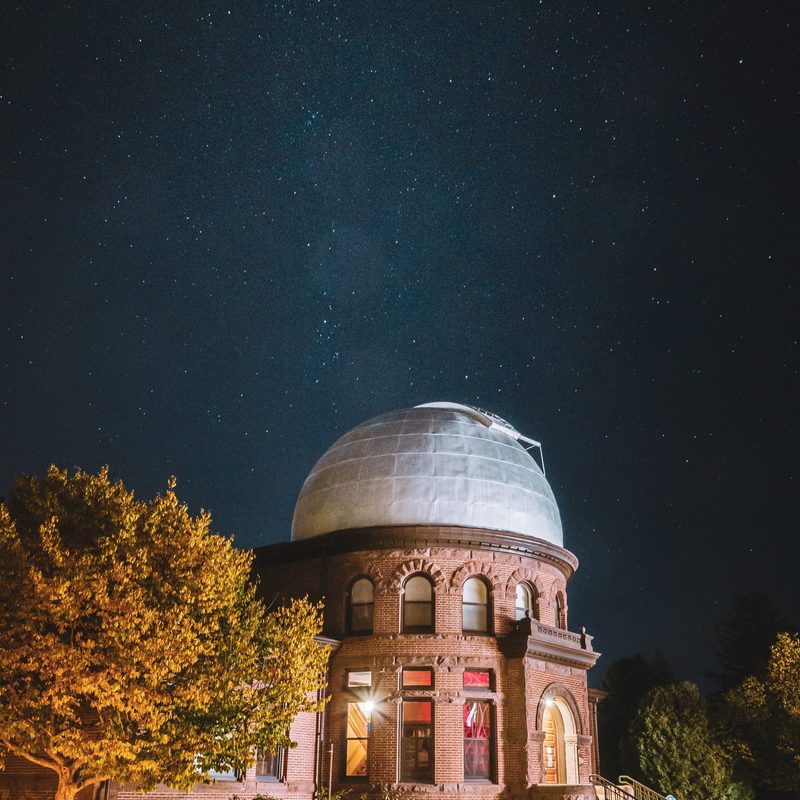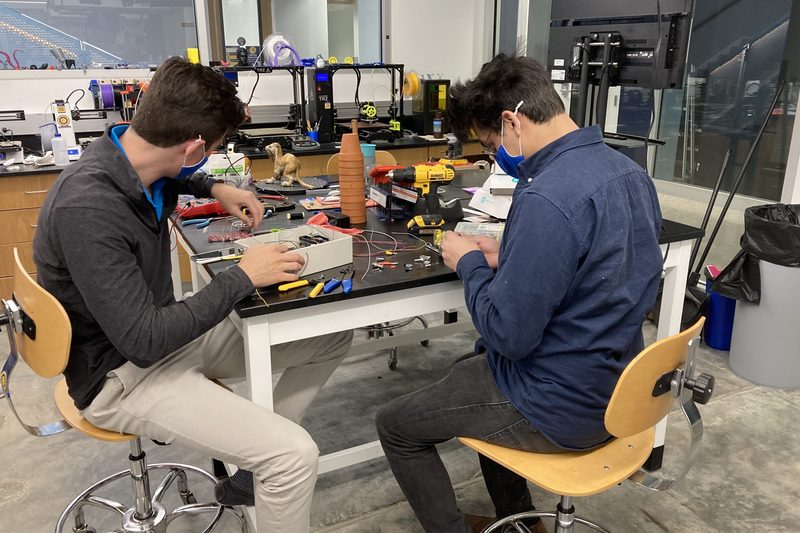All Aboard the Fellowship! Fellowships and Research at Carleton
Jancyn discusses the avenues in which Carls pursue Fellowships and research.
Jancyn discusses the avenues in which Carls pursue Fellowships and research.
Research opportunities in the classroom and beyond
Conducting research, in whatever iteration, is a large part of the Carleton experience. For example, most academic courses will have a research element. One of the graduation requirements is to complete two “writing rich” courses. Writing rich indicates that a course is writing intensive, and these courses often require lots of reading, resource collection, thesis construction, and academic research for end-of-term papers. In a variety of courses that satisfy our other graduation requirements like humanistic and social inquiry, you engage in discourse and learn to write with conviction.

The student-faculty ratio makes all the difference
The classroom is often a launchpad for most students to begin engaging with academia at a higher level. The student-faculty ratio remains around 9:1, which means it is a priority for professors to provide guidance in coursework. Impressively, over 90% of faculty have a terminal degree in their field, and many students engage in research with professors.
About 55% of students will be a part of a research project in their time at Carleton, and many times, this is an invitation extended by a professor after a good term of work! If you take part in research at Carleton during the school year, it will count for academic credit, and if you conduct research over the summer or a break period, you’ll get paid.

Research at Carleton spans every field and isn’t exclusive to STEM. I’ve had friends in charge of feeding our colony of monkeys while others have investigated campaign media and political rhetoric. The beauty of being at a smaller college means these opportunities are available to you very early on (even during your freshman year). Additionally, no Carl is forced to compete with thousands of other students.
Career Center Resources
There are several career advising and supports on campus to help connect you with research opportunities so you’re not wading through pools of applications by yourself. The Career Center is a fantastic resource, and again, you may begin interacting with them as early as your freshman fall! They’ll help construct your cover letters, build your resume, develop your interviewing skills, and curate your LinkedIn page.
If you’re not able to commit to a summer of research, the Career Center’s most popular offering is the Externship program. Externships are 1-3 week-long experiential internships that take place during our 6-week winter break. They span every field and are on-site around the globe. The externships are usually hosted by Carleton alumni, and serve as a great networking opportunity. During my externship, I worked with Judge Bruce Manning ’86 in the Hennepin County Court. Early on, before the externship started, he connected me to other attorneys and judges that shared similar backgrounds, ambitions, and offered tons of insight. I attended nearly 100 trials and even wrote an active court order.
Be prepared for what’s ahead
When it comes to life after Carleton, these connections you establish during undergrad via research, externships, etc., are super important. Whether you’re applying to grad school, taking a gap year, or entering the workforce, you don’t just get dropped into the “real world” by Carleton after or approaching graduation. The Career Center does a phenomenal job providing resources for pre-professional exams (MCAT, LSAT, GRE) and helping prepare personal statements for applications.
Aside from the Career Center, another helpful resource is the Fellowship Office. The Fellowship Office will often connect with students way before their senior year to make them aware of programs, scholarships they’re eligible for, gap year and post-graduate research opportunities, and undergrad research consortiums. Fun fact: Carleton is one of the largest contributors of Fulbright Scholars annually and has placed more students in the Harvard Divinity School than Harvard graduates!
To sum it up, what the future looks like for you after Carleton can mean a myriad of things, but these specialized offices do a fantastic job in helping you navigate it.
Jancyn is a rising junior from Kansas City, MO. She is a Political Science/IR major and has minors in Public Policy and Spanish. Outside of class, Jancyn serves as a senator on CSA (student senate), plays women’s varsity volleyball, coaches men’s club volleyball, serves as president/founder of the Black Student-Athletes of Carleton, participates in a number of Black student orgs, and works for the Admissions Office! Meet the other Bloggers!